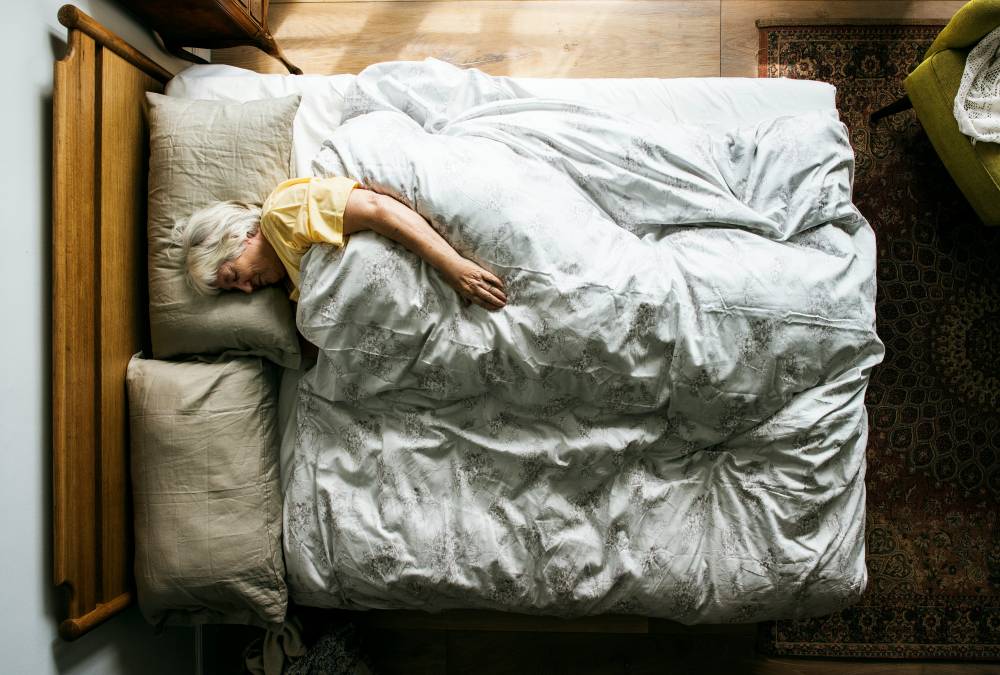Why sleep changes in your 50s

Turning 50 often ushers in a deeper appreciation of life’s rhythms. It is a decade marked by confidence, clarity, and in many ways, a renewed sense of self. Yet for all the wisdom it brings, this stage of life can also deliver an unexpected challenge: sleep that no longer feels restorative.
What once was a simple ritual of drifting off and waking refreshed becomes interrupted, elusive, or frustratingly light. Many people in their 50s find themselves awake at two in the morning—mind racing or body restless, only to wonder why a full night’s sleep suddenly seems like a luxury. The answer lies in a mix of biology and lifestyle, and while changes in sleep are common, they are far from inevitable.
Changes in our bodies play a part in this
Hormones sit at the center of this story. For women, menopause marks a profound shift, with declining levels of estrogen and progesterone altering the very architecture of sleep. Hot flashes and night sweats can jolt the body awake, while reduced progesterone, a natural sleep-promoter, makes it harder to slip back into slumber.
For men, the decline in testosterone that unfolds gradually during this decade has also been linked to fragmented and shortened rest. Add to this the natural dip in melatonin production, the hormone that signals when it’s time for sleep, and the body’s internal clock can feel stubbornly out of sync. Sleep in your 50s is not only lighter, but often punctuated with deep and rapid eye movement (REM) stages, which are more difficult to reach and sustain.
Another factor is the gradual decline in the function of the hypothalamus, the part of the brain that helps regulate sleep-wake cycles. Alongside changes in melatonin and cortisol, this can reduce the quality and duration of rest, which explains why people often begin to sleep less as they age or find themselves waking more frequently throughout the night.
Compounding these biological changes is the reality that the habits of younger decades no longer work in quite the same way. A late-afternoon coffee that once provided nothing more than an energy boost may now push bedtime back by hours. That evening glass of wine, long considered a soothing nightcap, can interfere with the deeper stages of sleep, thus leaving the body tired despite eight hours in bed. Even the environment of the bedroom itself takes on new importance. Where warmth once felt comforting, it can now trigger discomfort as the body becomes more sensitive to fluctuations in temperature.
How to get better sleep
The encouraging news is that sleep in your 50s can still be deeply restorative. According to Paul Kaloostian, M.D., a California-based neurosurgeon, one of the most effective ways to support healthy rest is by getting as much natural sunlight as possible, particularly in the morning.
As people get older, they often spend less time outdoors, yet exposure to natural light helps regulate the body’s circadian rhythm—the internal clock that governs when you feel alert and when you feel drowsy. Over time, however, people tend to spend less time outdoors, limiting this natural signal. By stepping outside for a morning walk or simply letting daylight flood into your home, you help set the stage for better sleep later on.
Stress management also plays a crucial role. Chronic stress triggers the release of hormones that keep the body alert, making it harder to fall and stay asleep. Finding ways to soften daily tension, maybe through mindfulness practices, gentle exercise, journaling, or even small rituals of self-care, can calm the nervous system and prepare the mind for rest.
Consistency is another quiet but powerful ally. Going to bed and waking up at the same time each day strengthens your internal rhythm, making it easier to slip into sleep and wake feeling refreshed. Pairing this with an evening ritual such as reading, stretching, or dimming the lights creates a gentle cue that the day is drawing to a close.
It also helps to be mindful of screens and stimulants. The blue light from phones and tablets can suppress melatonin, while caffeine and alcohol in the evening can fragment sleep or make it harder to drift off. Swapping late-night scrolling for calming activities, choosing lighter dinners, and limiting stimulants can make a meaningful difference.
Equally important is the environment itself. The bedroom should be a sanctuary for rest, cool and quiet, with supportive bedding that invites relaxation. Simple adjustments like lavender scents, blackout curtains, or white noise can transform the quality of sleep in surprising ways.
A daily reset
In many ways, this stage of life invites a new perspective on sleep. Rather than chasing the patterns of your 30s or 40s, it becomes about embracing what your body now asks for and responding with care. Sleep is no longer a passive act but an intentional practice, one that supports memory, mood, and vitality.
Approached with this mindset, the 50s can be a time, not of sleepless nights, but of restorative rest that fuels the energy, clarity, and joy needed for the years ahead. After all, sleep in your 50s isn’t a luxury—it’s a daily reset that keeps the body resilient and the mind clear.
And while these changes are often felt most keenly in your 50s, the habits that nurture sleep are not bound to any age group. Sunlight, routine, stress management, mindful eating, and a soothing environment can benefit everyone. The earlier these practices are woven into daily life, the more resilient your sleep and overall health can become in the years to come.

















